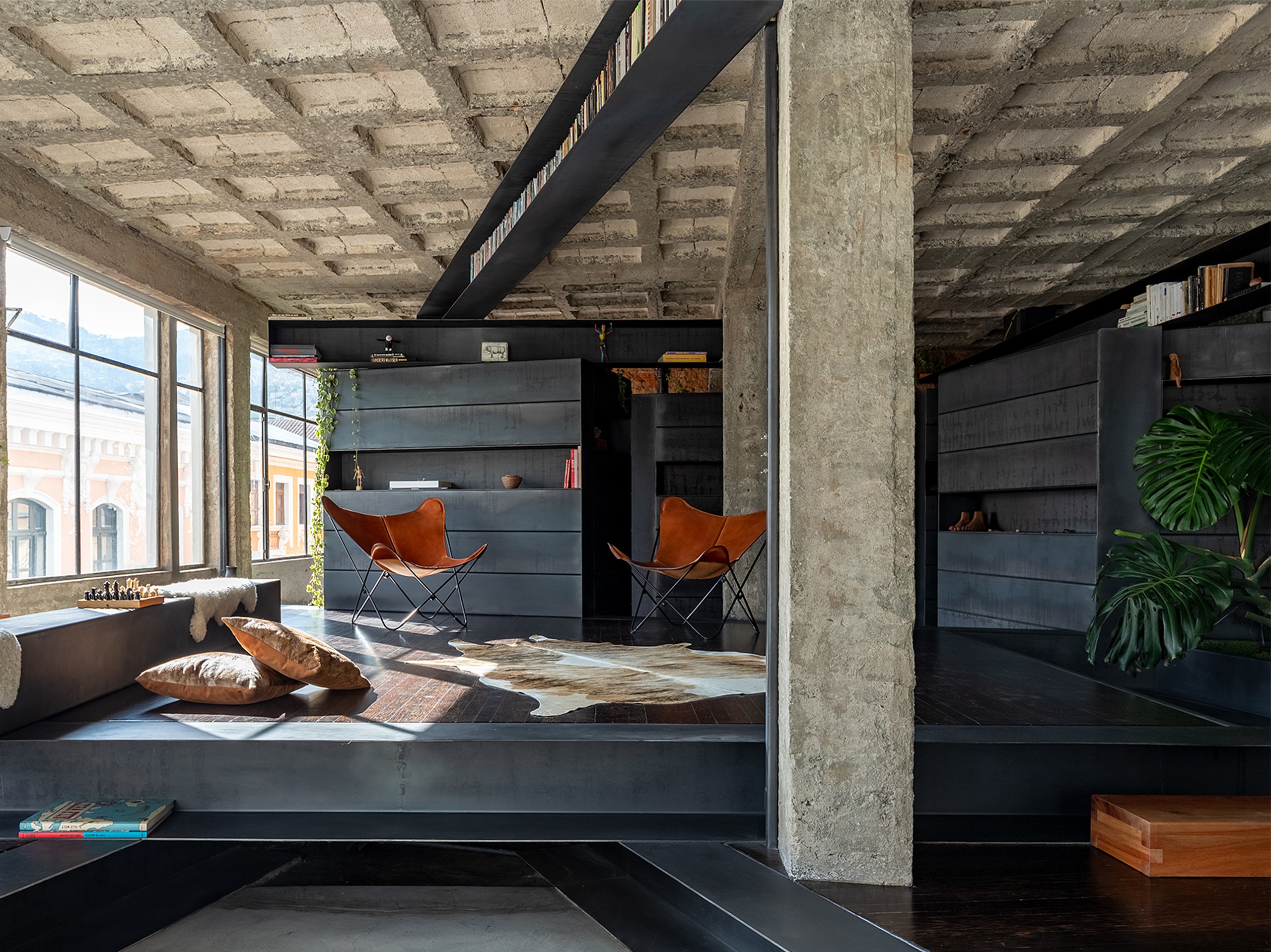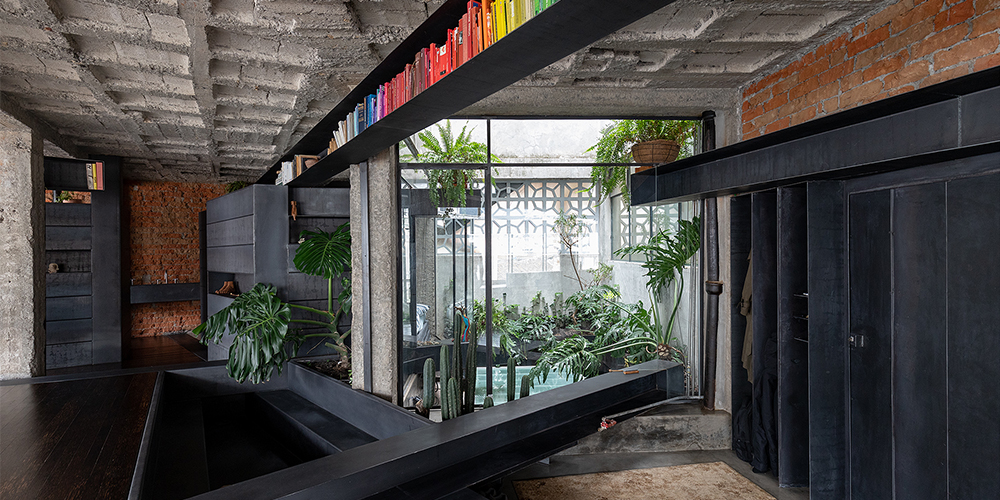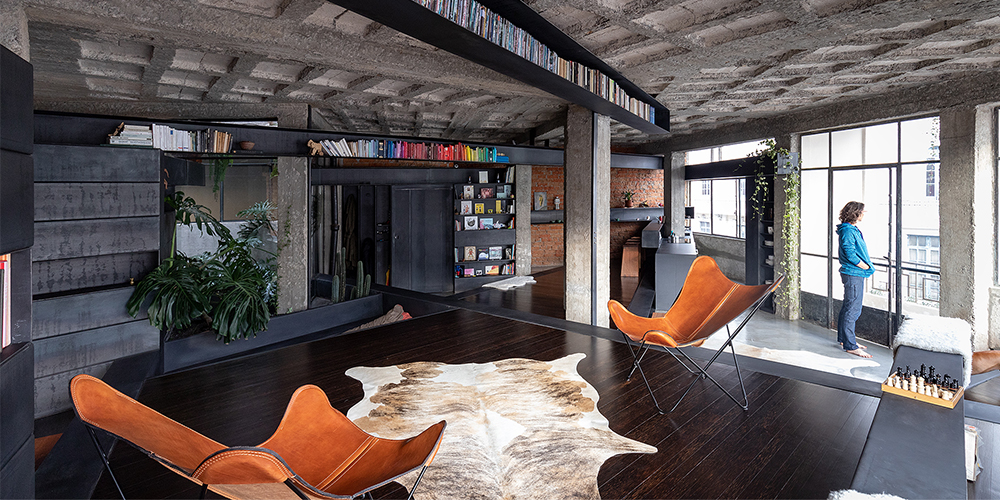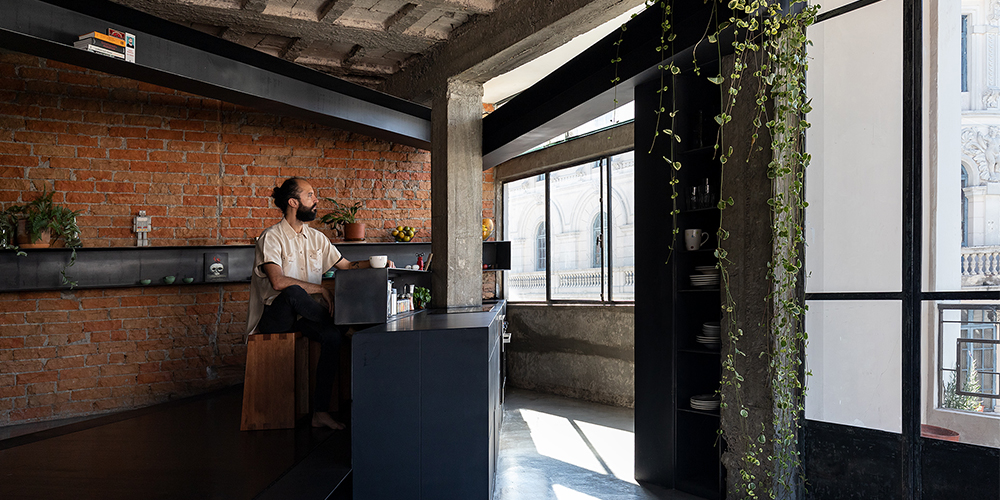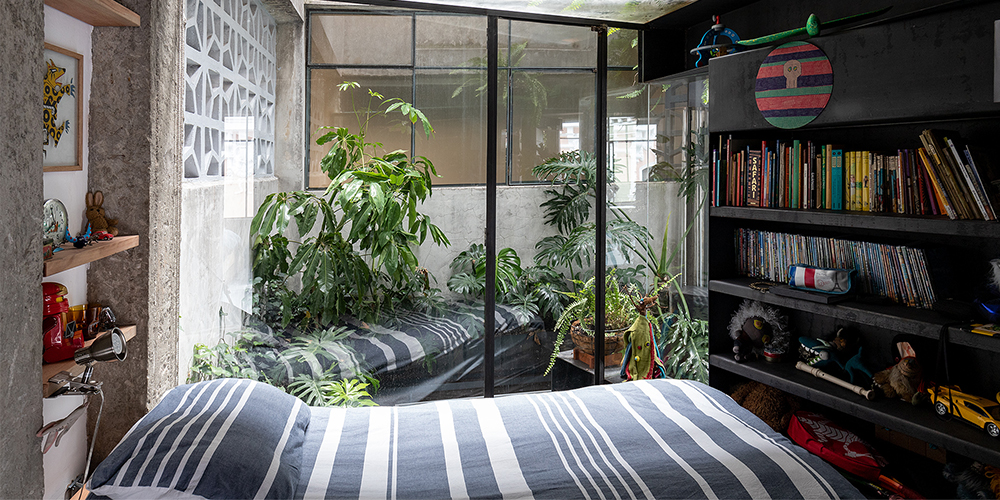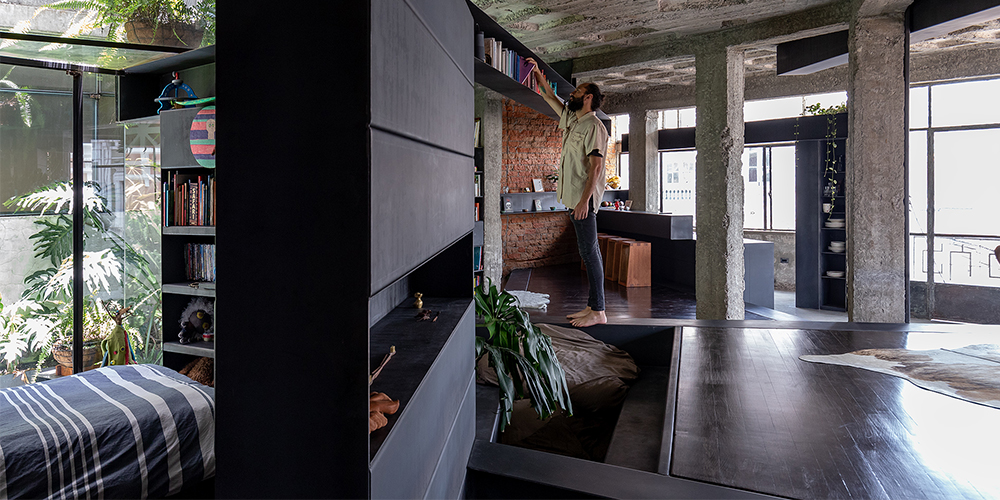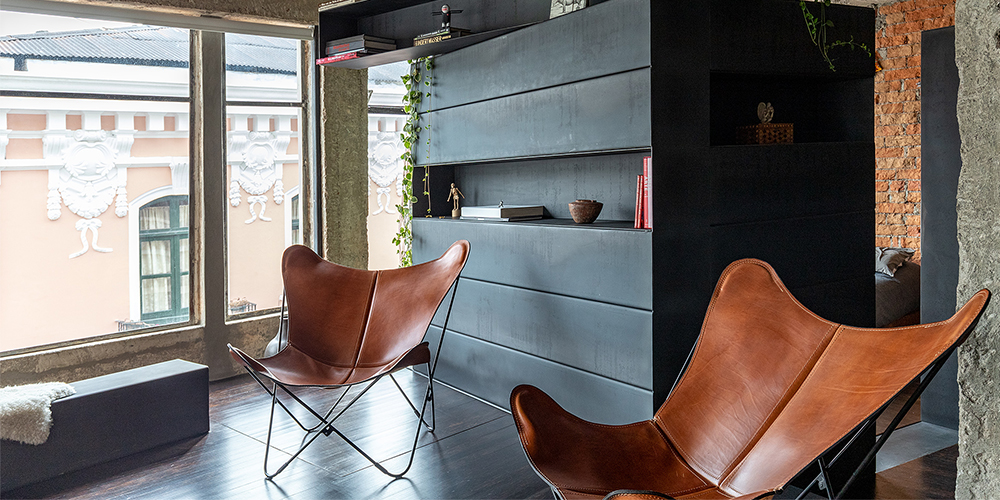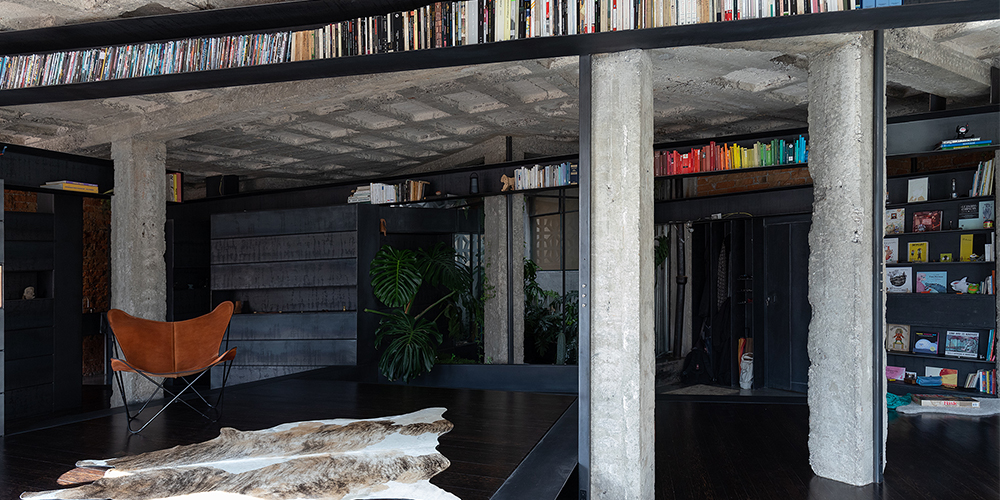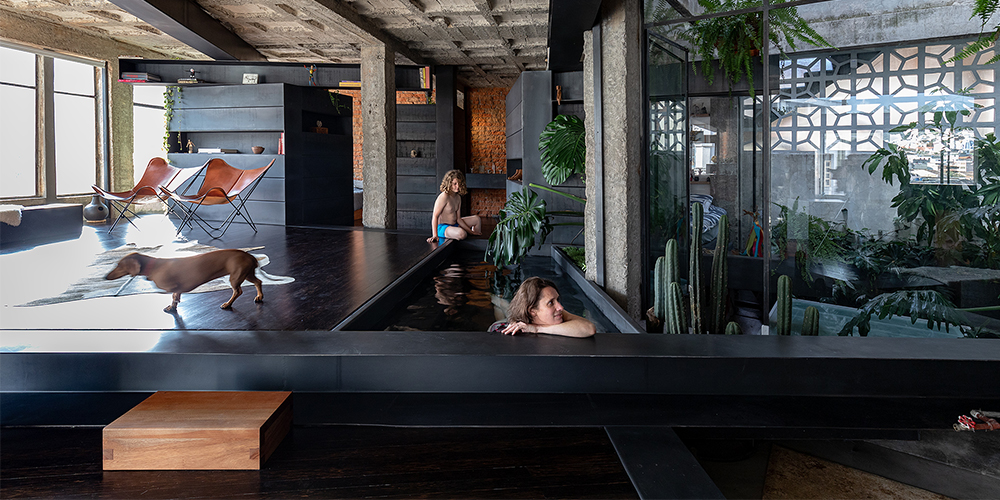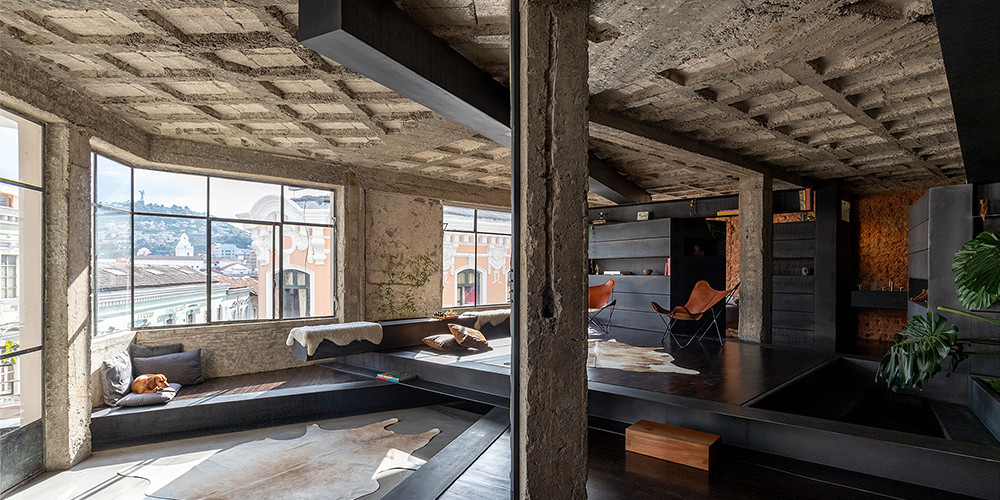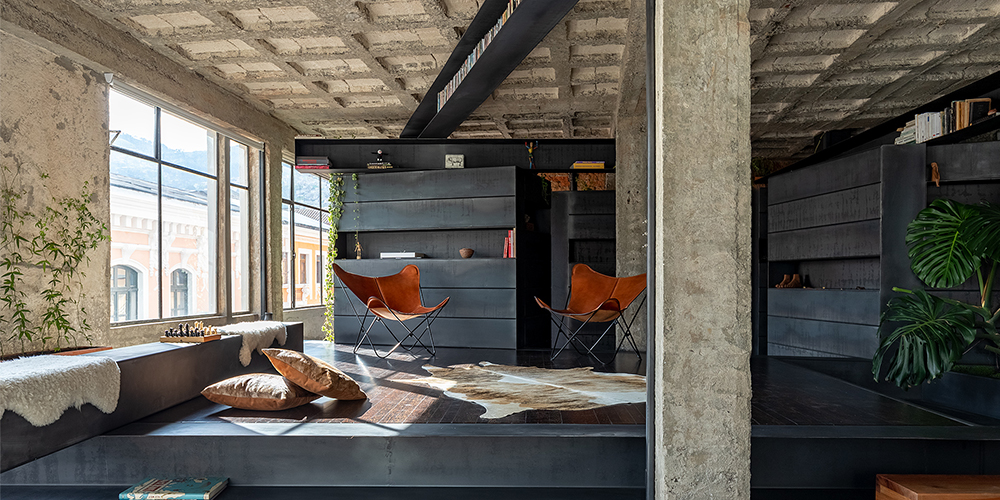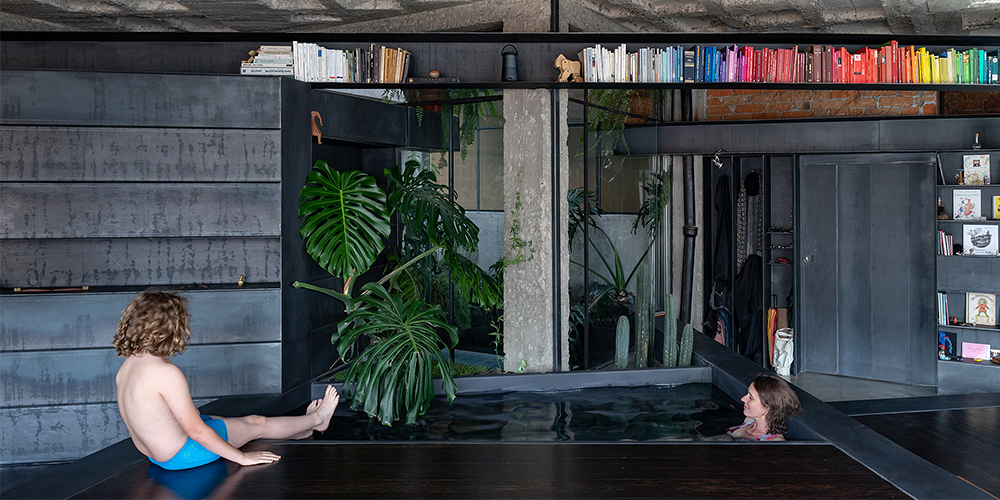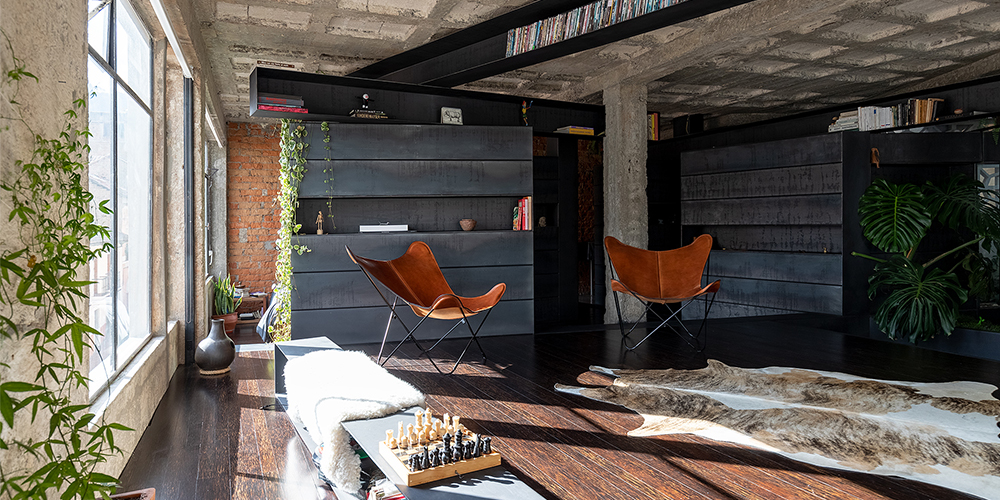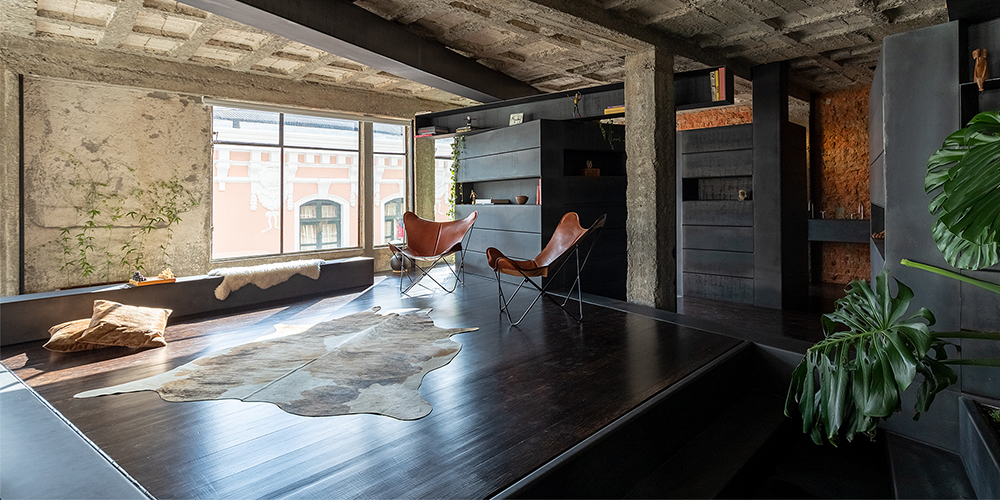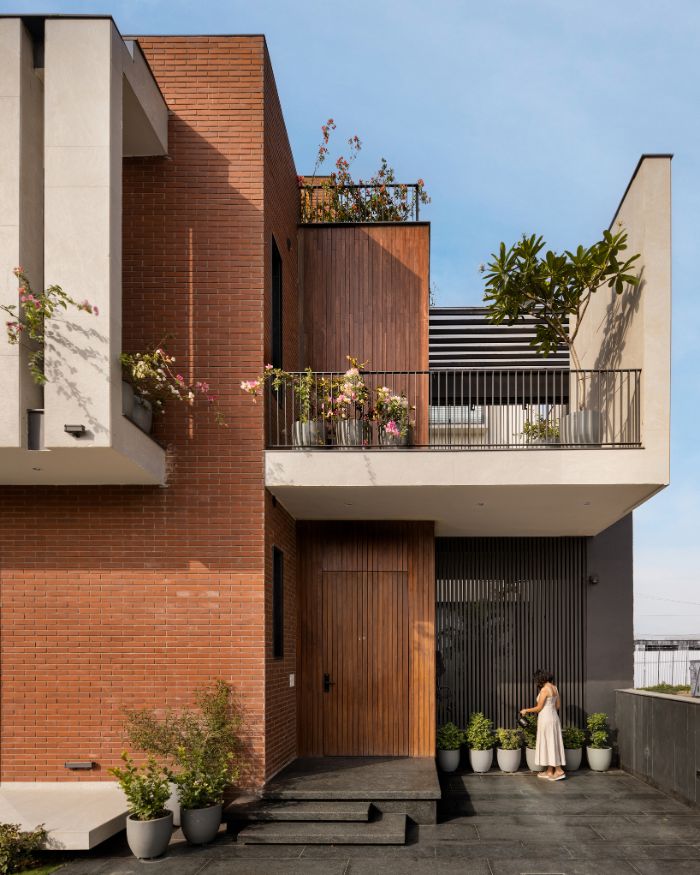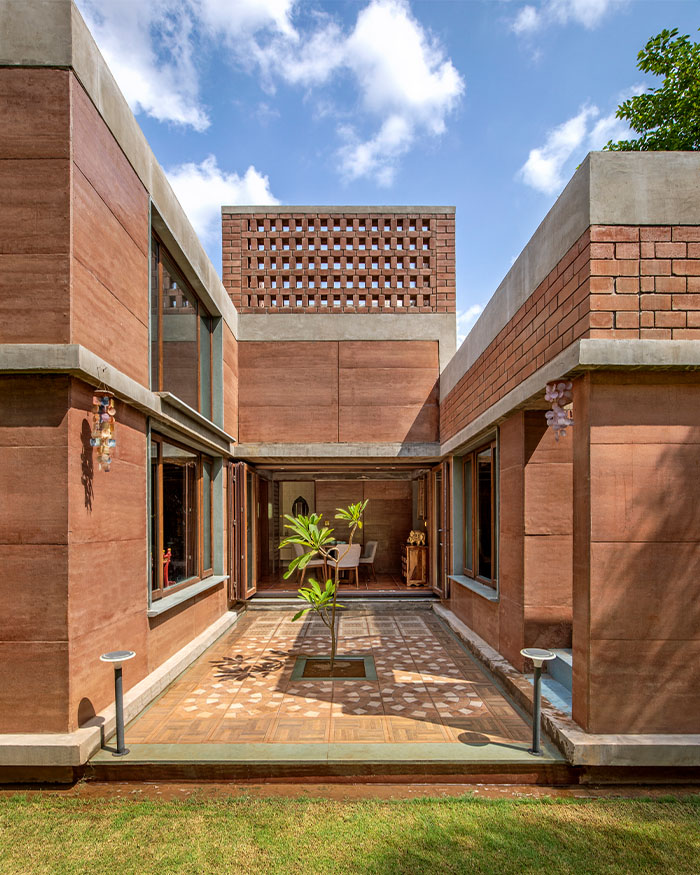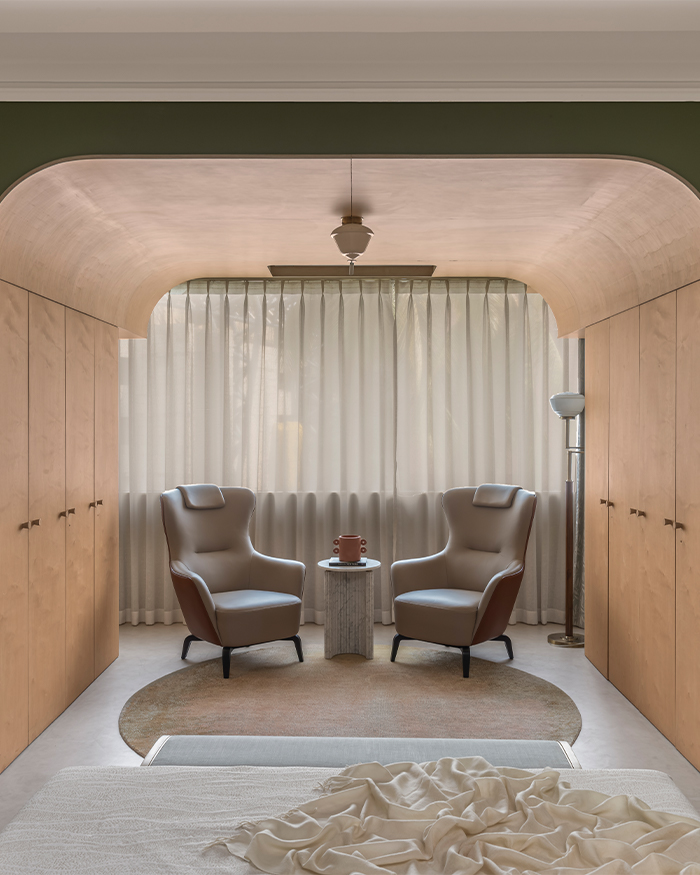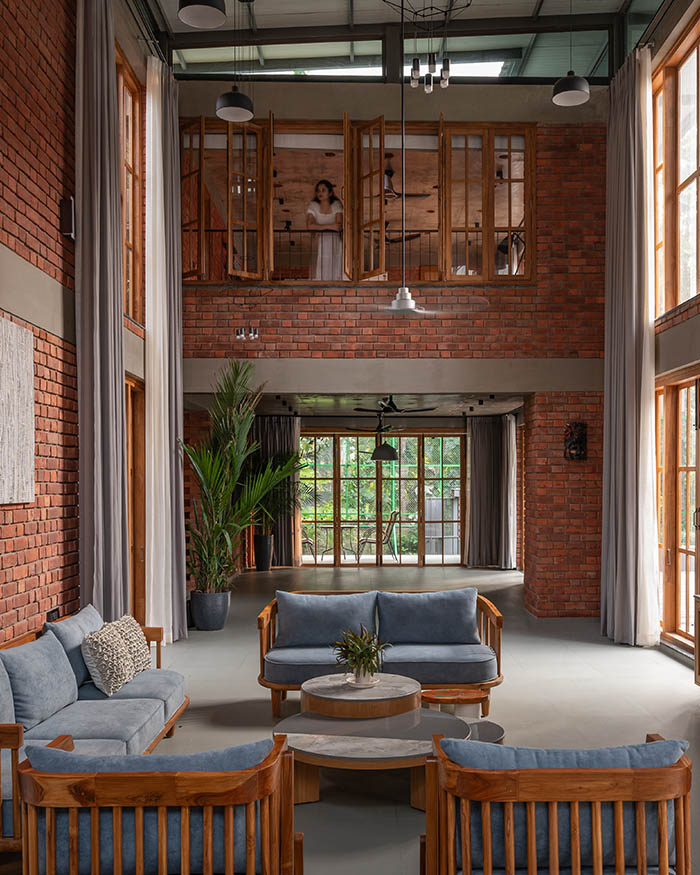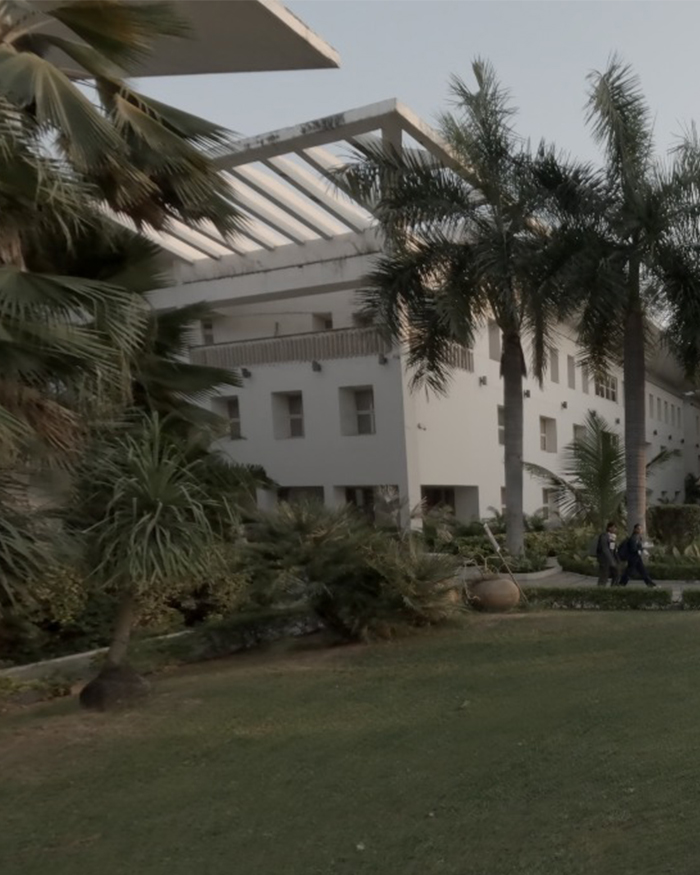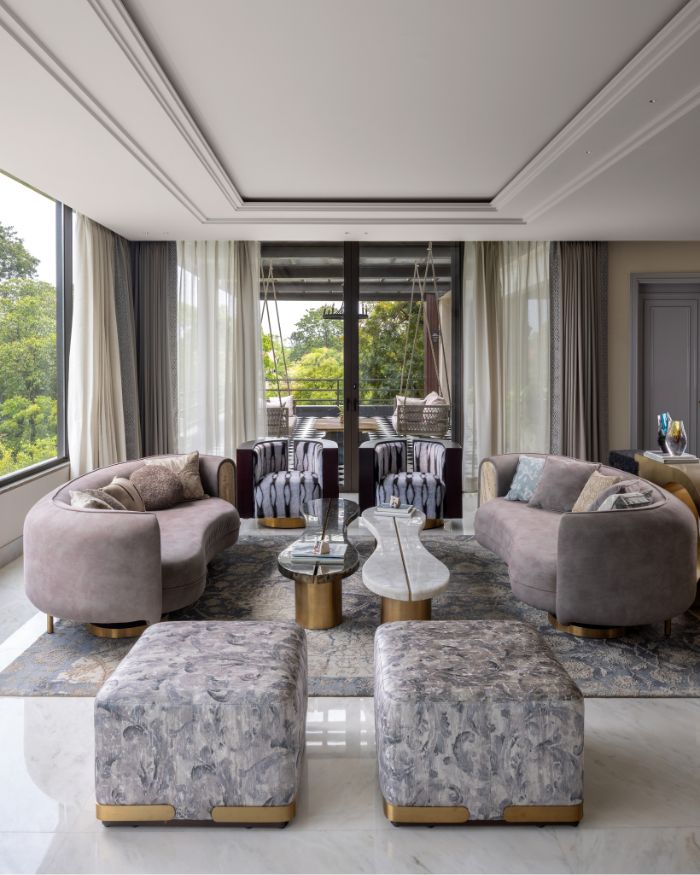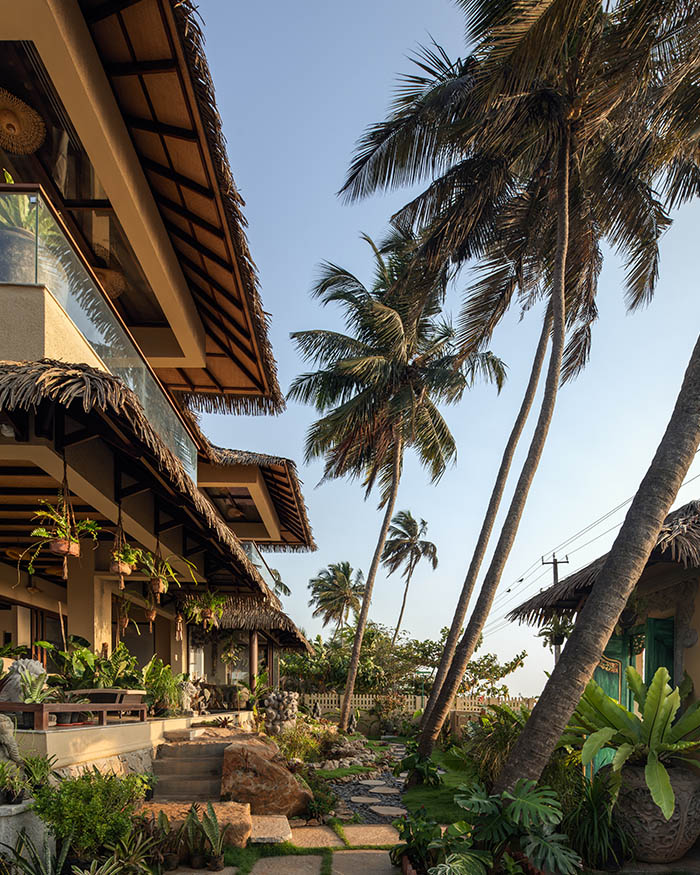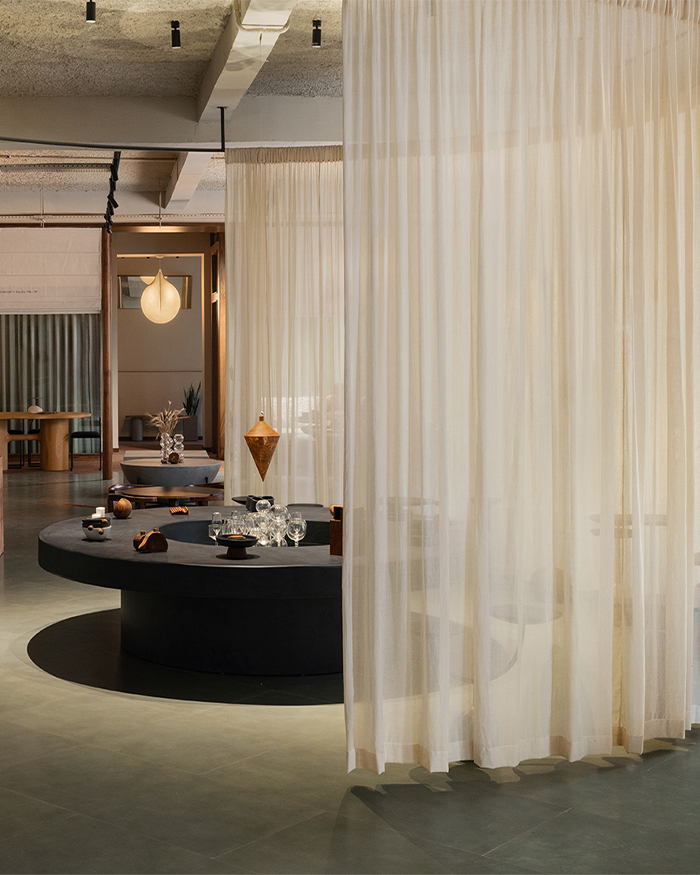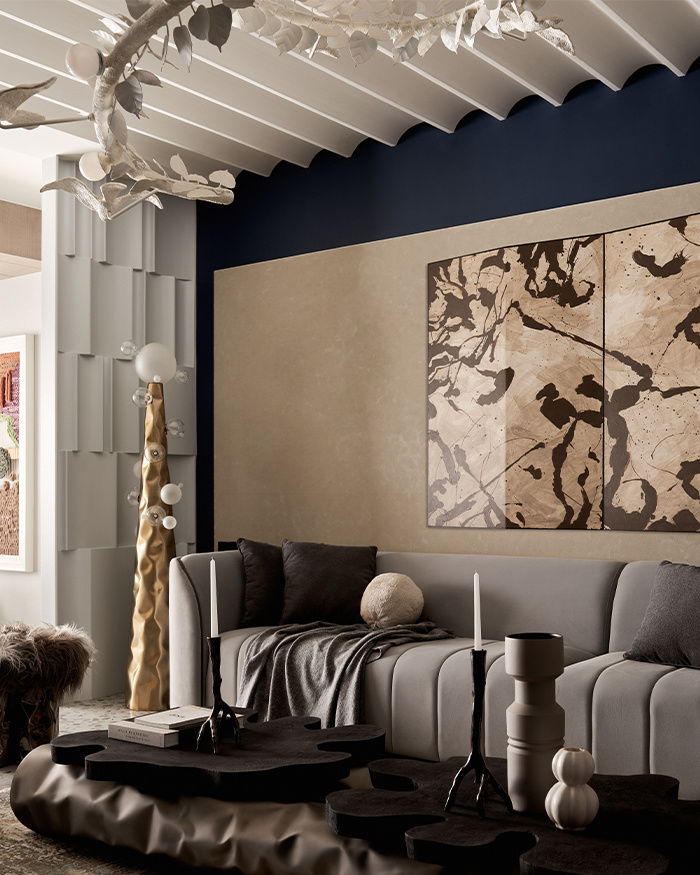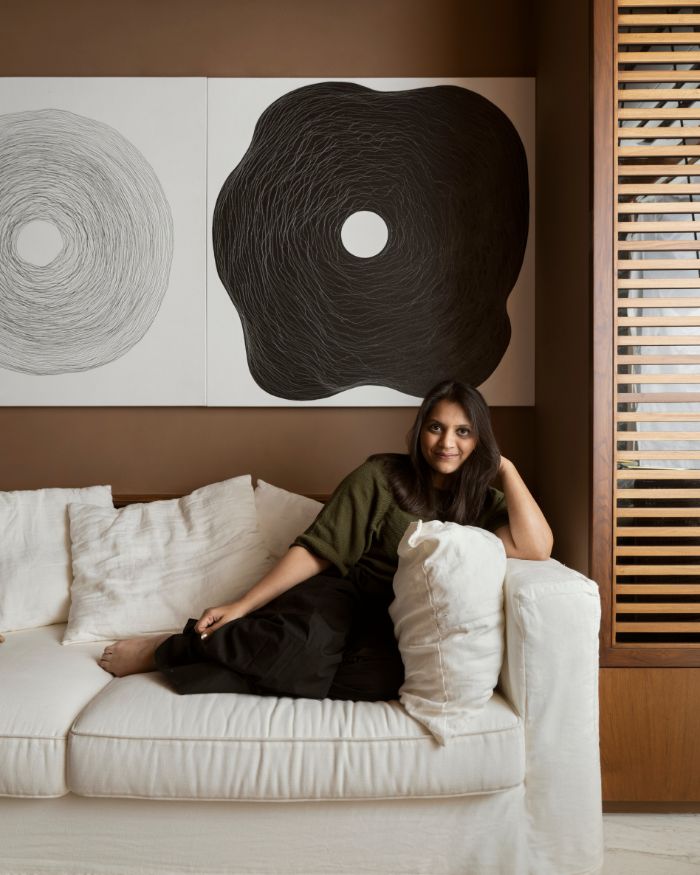This 1,200 sq ft apartment in Ecuador’s capital city is surrounded by historic edifices—blending European, Moorish and indigenous architectural styles—in one of the first World Cultural Heritage Sites declared by UNESCO. Christened A Forest, the home is conceptualised by architect Aquiles Jarrin and the homeowners, who wanted a strong presence of nature as well as a social space with no strong divisions between communal and private zones.
Significant modifications were made to the structure, playing up existing attributes such as the abundance of light, airiness, existing concrete framework (with a free height of 3m) and, of course, the iconic backdrop of the ancient city of Quito, framed by Republican facades.
The interior walls were demolished for more ventilation and to add greens. Some were replaced by glass openings with an access to a green oasis configured out on the patio. Without walls, the columns of the structure stood out, compelling the experimental architect to design the project around them. So he envisioned them as tree trunks rather than mere support columns. This solidified the idea of the house being a wilder world—hence the name: A Forest—rather than a domestic space.
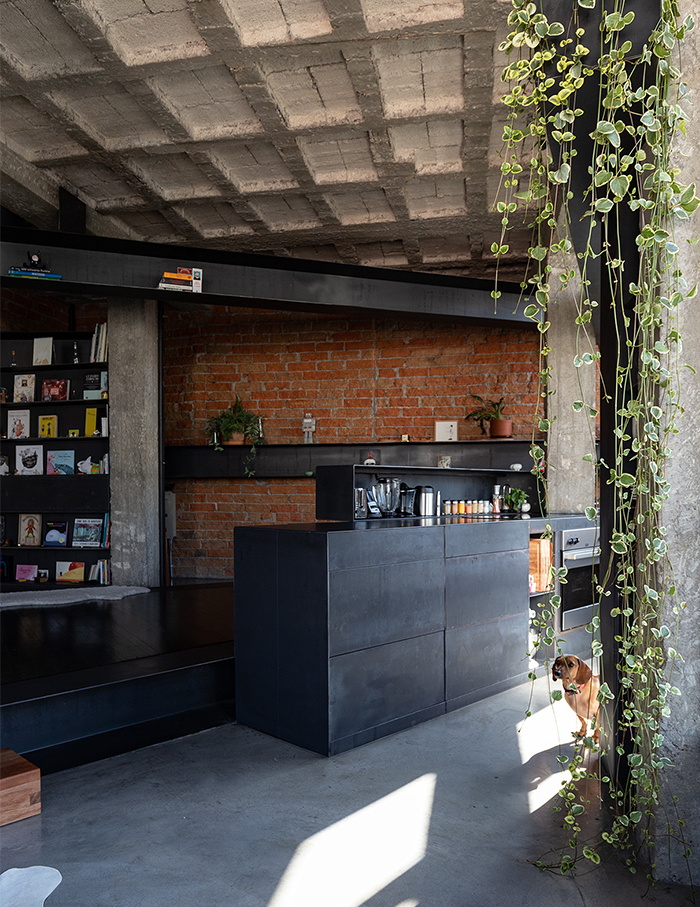
“If the columns were trees and the space a forest, they would appear as they do in nature—some towering and sweeping, some fallen and others converging and overlaying. A playful and experimental exercise began, until a configuration was decided to accommodate the needs of habitability. By overlapping ‘the trunks’, new floor levels were created and an interior topography established,” explains Jarrin. “The part I enjoyed designing the most were the long beams that cross the space, although my favourite spot is the interior garden,” he adds.
The layout of the apartment is quite simple—the open plan social area is revealed right at the entrance and to its right is the green patio. Large windows offer magnificent views of Quito’s famed locality at the Andean foothills.
Metal wall furnishings (not doors) segregate the main space from the bedrooms and bathroom. “All the architectural interior elements have been designed and produced manually, including the benches and lavatories. There is no sourced furniture except the BKF chairs,” says Jarrin.
For this multifunctional space, metal was found to be the most suitable material for its versatility and its use in developing design elements. By cleaning the place of any elements that covered up or diminished the material’s nature, an alluring contrast of brutalist surfaces and sleek finishes is achieved. It is made all the more dynamic by the lush green shrubbery that punctuates this stark space.

